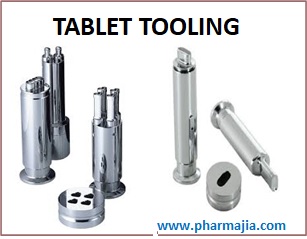USER REQUIREMENT SPECIFICATION PROTOCOL FOR COLLOID MILL
USER REQUIREMENT SPECIFICATION PROTOCOL FOR COLLOID MILL
CONTENT
| Sr. No. | PARTICULARS | PAGE NO. |
| 0.0 | Version control history | 3 |
| 1.0 | Objective | 3 |
| 2.0 | Purpose | 3 |
| 3.0 | Scope | 3 |
| 4.0 | Responsibility and Accountability | 4 |
| 5.0 | Introduction | 4 |
| 6.0 | Overview | 4 |
| 7.0 | Technical requirements | 4-5 |
| 8.0 | Compatibility and support | 6 |
| 9.0 | Material of construction | 6 |
| 10.0 | Documentation required | 6 |
| 11.0 | Others | 7 |
| 12.0 | Summary | 7 |
| 13.0 | Remark | 7-8 |
| 0.0 | Version control history | |||||||||||||
|
||||||||||||||
| 1.0 | Objective | |||||||||||||
| This procedure describes the guideline for specifying the user requirement specification for Colloid Mill for First floor pellets manufacturing section. | ||||||||||||||
| 2.0 | Purpose | |||||||||||||
| written procedure shall be followed for user requirement specification for Colloid Mill for First floor pellets manufacturing section. | ||||||||||||||
| The User Requirements Specification (URS) is provided to aid the user through the important components and specification
necessary to procure Colloid Mill, that meets the user’s needs in the most cost-effective method possible. |
||||||||||||||
| The URS is then provided to the Supplier to provide a price quote for Colloid Mill including the design of the equipment. | ||||||||||||||
| 3.0 | Scope | |||||||||||||
| The purpose of this User Requirement Specifications (URS) is to define the minimum requirements for Colloid Mill | ||||||||||||||
| Supplier must ensure that the design, materials and component selection, control system, connected mechanical and electrical
services of Colloid Mill will be consistent with good engineering practice. |
||||||||||||||
| Colloid Mill will be located at First floor pellets manufacturing section. | ||||||||||||||
| 4.0 | Responsibility and Accountability | |||||||||||||
|
||||||||||||||
| 5.0 | Introduction | |||||||||||||
| Name of Project: Colloid Mill | ||||||||||||||
| Colloid Mill is commonly use in pharmaceutical industry. This is a machine that is used to reduce the size of particles of solids that are suspended in a liquid, when a liquid is suspended in another liquid, meaning that they are immiscible, this machine is use alternatively to reduce the size of this droplet. | ||||||||||||||
| Location: FF Floor pellets section | ||||||||||||||
| 6.0 | Overview | |||||||||||||
| This URS helps the User to define the Colloid Mill technical specification requirement. | ||||||||||||||
| Working Principle – A colloid mill is used to reduce the particle size of a solid in suspension in a liquid, or to reduce the droplet size of a liquid suspended in another liquid. The rotor & stator are placed close enough to create a narrow passage where the material to be reduced in size in passed through. | ||||||||||||||
| 7.0 | Technical requirements | |||||||||||||
| 7.1 | Specification & performance | |||||||||||||
| Colloid Mill | SS body on which machine and motor both are mounted, in horizontal type Deluxe model. | |||||||||||||
| Make | Procured from approved vendor. | |||||||||||||
| Capacity | 10 to 200 ltr./Hr | |||||||||||||
| Hopper capacity | NLT 20 Liter ( SS cover required for closed system ) | |||||||||||||
| Design | Jacketed and FLP | |||||||||||||
| All contact part | SS – 316 and mirror finish. | |||||||||||||
| Motor | Flame proof motor with 3 phase supply provision. | |||||||||||||
| Grinding accuracy | 5 -10 Micron and specially designed conical shaped stator and Rotor assembly. | |||||||||||||
| Cock system | Three way cock system for draining and recirculation of liquid in water. | |||||||||||||
| Non-contact part | SS – 304 and matt finish. | |||||||||||||
| Gasket and rubber | Silicon and food grade material. | |||||||||||||
| Stator and Rotor assembly | Balance and house in the stainless steel housing. | |||||||||||||
| Extended Bearing | It shall be designed to facilitate fine adjustment of bearing clearances of back lash to avoid
metal contact of Rotor. |
|||||||||||||
| Exterior screw | Adjustment of grinding gap by an exterior screw by means of two handles even during
the operation. |
|||||||||||||
| DOL starter | Starter shall be provided. | |||||||||||||
| PU Castor wheel | Antistatic wheel require for easy movement. | |||||||||||||
| 8.0 | Compatibility and Support |
| 8.1 | Electrical Supply/ Electrical system
The extent of supply must include all necessary components, installation and wiring to ensure that the complete system will be able to deliver functionality suitable for the intended use. In addition the supply must include, but not be limited to the following; |
| 8.1.1 | 415 VAC 3 phase supply. |
| 8.1.2 | The electrical system of the equipment shall be housed as per the cGMP and cGEP standards. |
| 9.0 | Material of construction |
| 9.1 | Contact part of equipment with product must be made up of SS 316L and Non-contact part made up of SS 304.
Gasket and Tubes: – Food Grade. |
| 9.2 | MOC certificate shall be provided. |
| 10.0 | Documentation required |
| 10.1 | Instruction Manual |
| 10.2 | Design of the equipment |
| 10.3 | Material of Construction Certificates |
| 10.4 | Electrical Drawing |
| 10.5 | Certificates of Motor & Sensor |
| 10.6 | Calibration certificate shall be provided. |
| 10.7 | Installation qualification |
| 10.8 | Operation qualification |
| 11.0 | Others |
| 11.1 | GMP & Safety Requirements |
| 11.1.1 | Earthling should be provided to equipment. |
| 11.1.2 | All the wires properly concealed. |
| 11.1.3 | All the pipes should be concealed. |
| 11.1.4 | Low noise level. |
| 11.1.5 | Guarantee and warrantee certificate should be provided. |
| 12.0 | Summary |
| 12.1 | Technical support in the lifetime of the equipment, i.e. 10 years. |
| 12.2 | Providing spare parts in the lifetime of the equipment i.e. 10 years. |
| 12.3 | The Supplier must provide a list of consumables and spare parts. |
| 12.4 | The Supplier must provide onsite support within 48 hours (normal workdays). |
| 12.5 | Telephone and online service support must be available within 24 hours (normal workdays). |
| 12.6 | 04 weeks after given raised of purchase order and commercial clearance. |
| 13.0 | Remark |
| 13.1 | The supplier must ensure that the equipment is thoroughly cleaned and properly packed before delivery. Any open ends must be
Sealed to prevent ingress of dust or moisture. |
| 13.2 | Any faults or deficiencies found during installation, or commissioning must be notified to the buyer at shortest possible time and are to
be corrected by supplier at shortest possible time without additional cost. |
| 13.3 | Supplier must be solely responsible for the supply of goods and services. Supplier must ensure that the equipment is suitable for intended
use, notwithstanding anything in the documents comprising this specification. The supplier must not be relieved of Responsibility under this clause. |
| 13.4 | Supplier must be responsible for the delivery of the units and assembly of the system. |
| 13.5 | The supplier is responsible for the installation of the unit, and for the connection of utility points. |
| 13.6 | The schedule for delivery of documents and components and for installation must be agreed and followed. |
| 13.7 | The equipment must be provided with suitable and adequate packaging for protection against weather, freezing, pilferage and rough
handling. |



